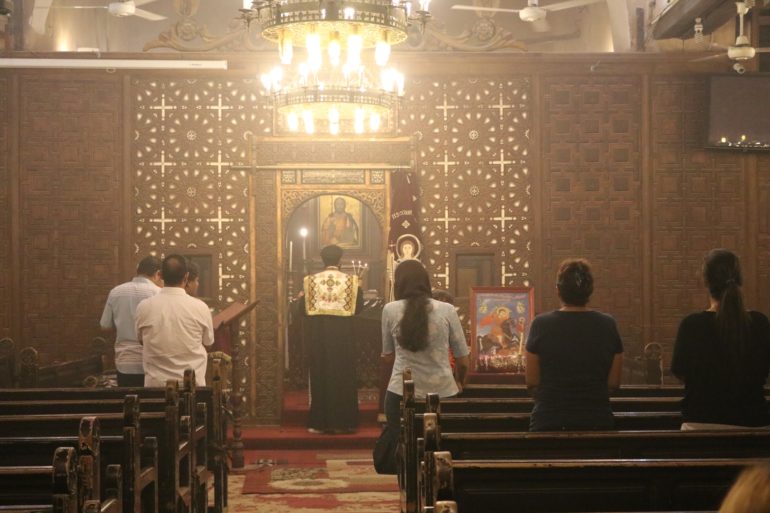
The 400 Coptic Christians in Ezbat Al-Forn, a village in Egypt’s Minya governorate, can no longer access their church after they were stopped from holding Sunday mass and banned from the premises by police yesterday (20 August), according to Coptic news site Watani.
When the Copts started chanting “Kyrie Eleison [Lord have mercy]” in the street, the police dispersed them by force, Watani said.
Police said the Copts, who were meeting in a private home, lacked a permit to use the home to practise religious rites, but the official police report shows that the decision was taken following complaints by local Muslims.
The Minus & Abu-Qurqas Bishopric, which purchased the small village house that Ezbat Al-Forn’s Copts had been using to hold church meetings for the last four years, said neither police nor the Muslim community had ever before raised any objections.
Under Egyptian law, no permit is required for religious meetings, according to the Bishopric. Article 64 in Egypt’s constitution guarantees the freedom to practise religious rites and establish places of worship, saying freedom of belief is an “absolute”.
15 churches closed, 70 villages with nowhere to worship
According to Anba Macarius, Bishop-General of Minya, his parish alone, which includes only Minya city and its immediate surroundings, is home to 15 churches that have been closed by security order, and some 70 villages and hamlets that have no church or any place to hold Christian worship.
In a statement issued last week, the Bishop expressed his disillusionment “at the failure of negotiations with security authorities in Minya to reopen churches closed by security order” because churches either lacked security approval or were considered offensive to Muslims and therefore a threat to social harmony.
As World Watch Monitor has reported, Copts have experienced similar challenges in the villages of Kom El-Loufy, El-Galaa, and also in Saft el-Khirsa – a town of around 12,000, including approximately 70 Christian families, which has ten mosques but no church.
Meanwhile, Watani reported in June that in the village of Dabbous in Samalout, near Kom El-Loufy, Copts have not been able to meet in their church since 2005.
The governorate of Minya, south of Cairo, is home to 5 million people, of whom 35-40 per cent are Copts, and has experienced the greatest number of sectarian attacks, with more than 75 targeting Christian residents in the past six years.